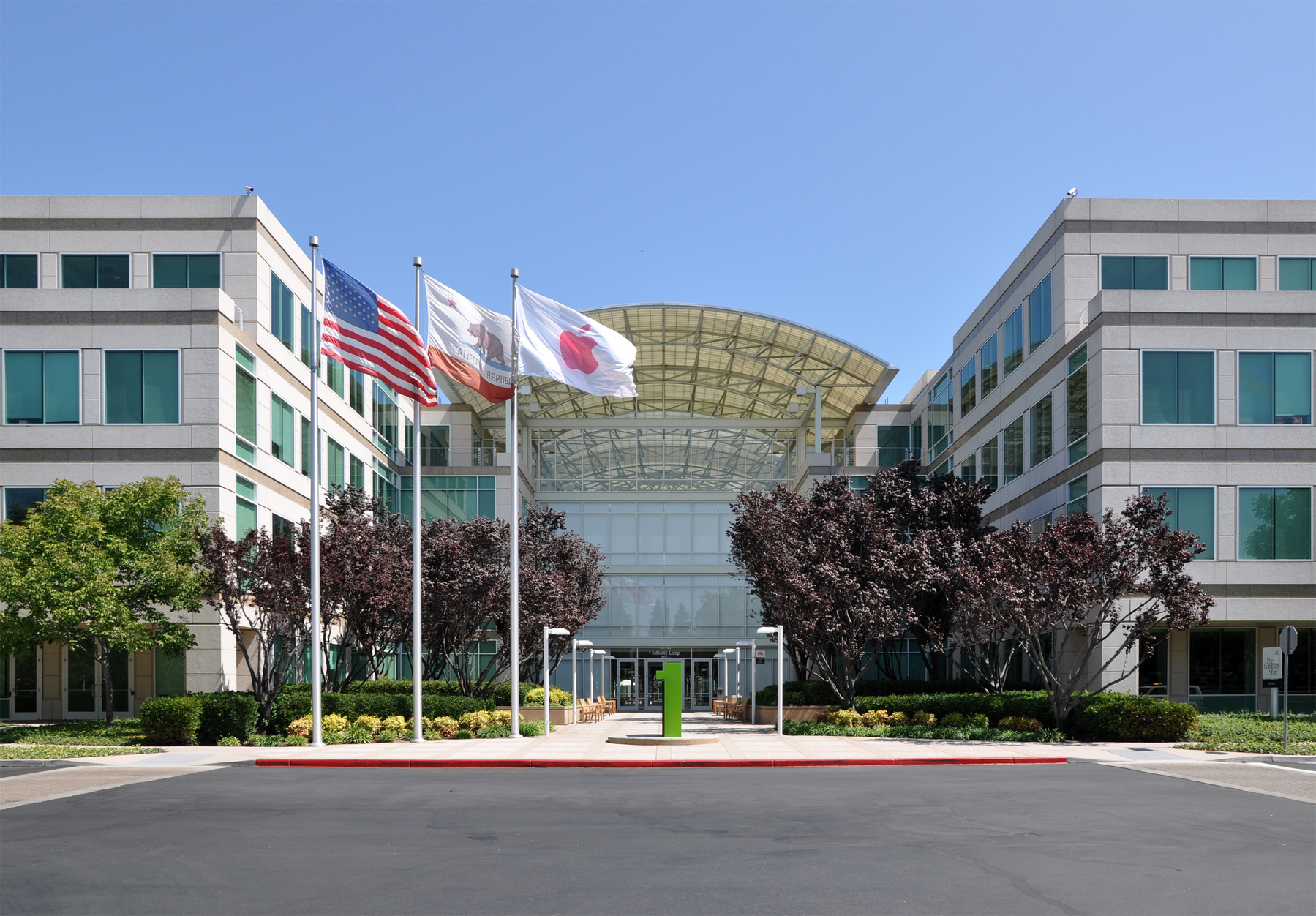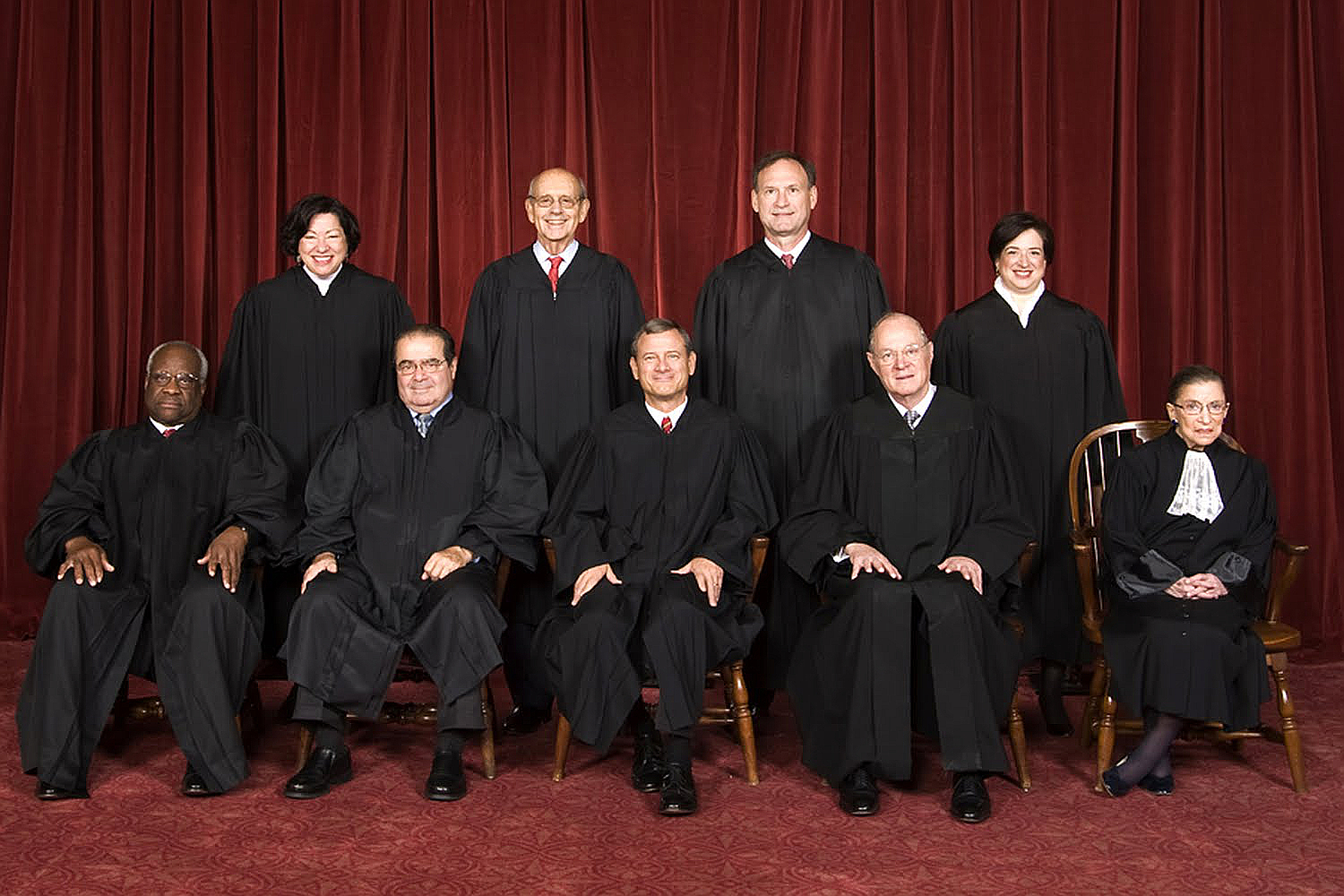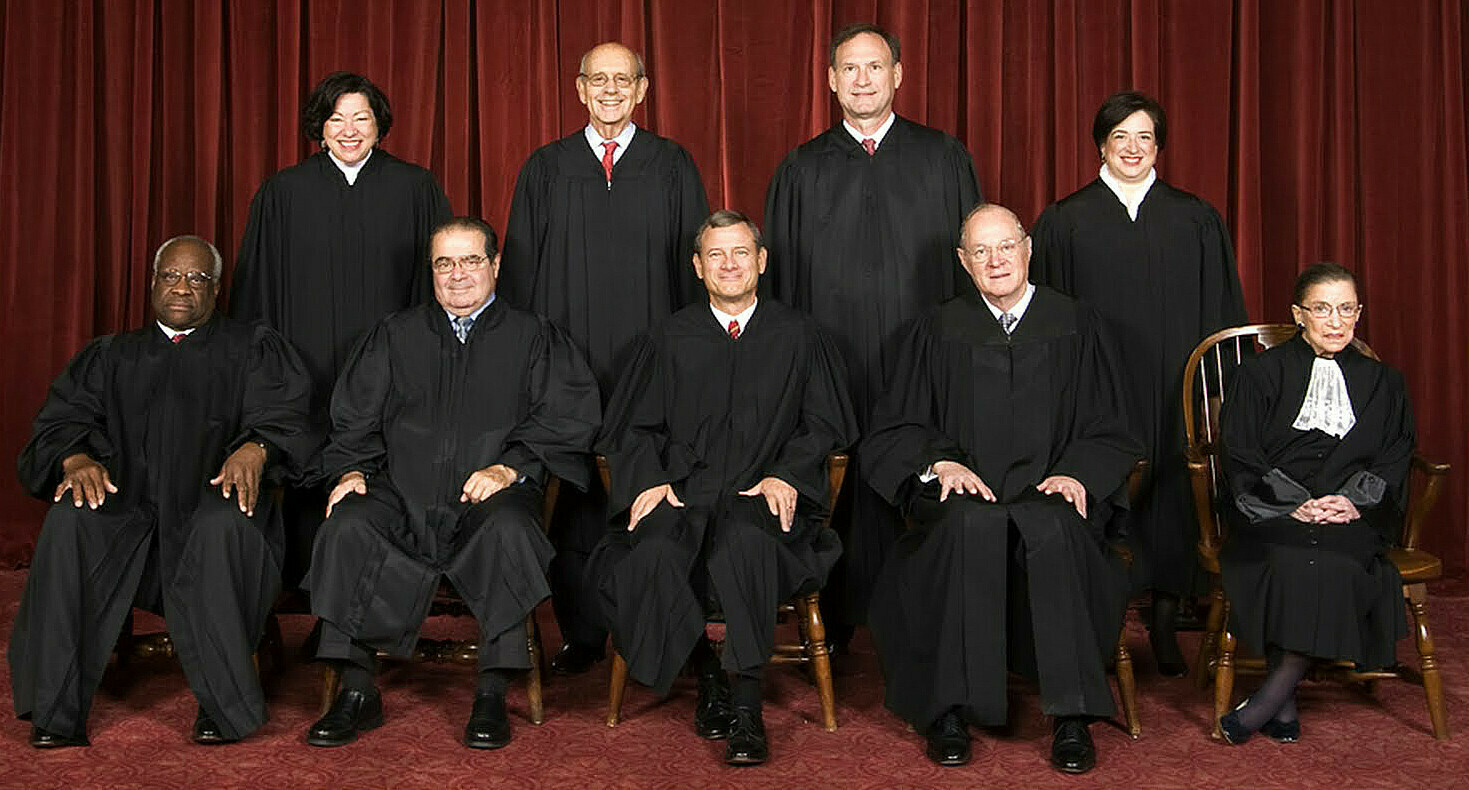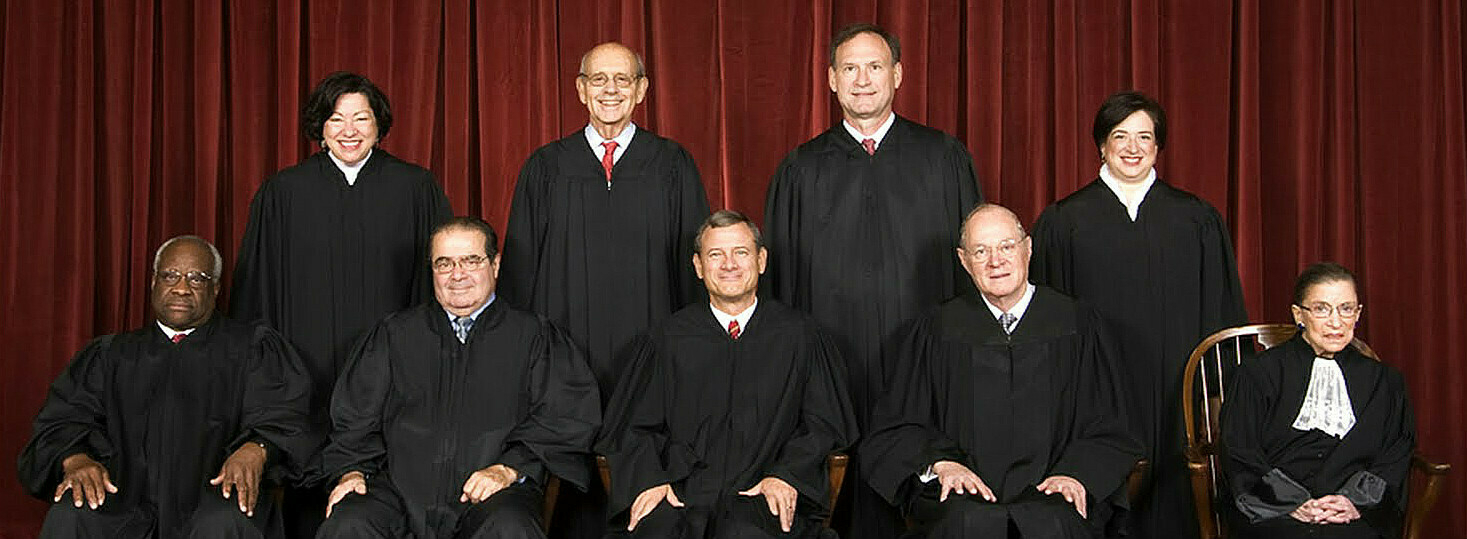Law
- Does the Fourteenth Amendment require a state to license a marriage between two people of the same sex?
- Does the Fourteenth Amendment require a state to recognize a marriage between two people of the same sex when their marriage was lawfully licensed and performed out-of-state?
-
Id. at (a)(1)(E)(2)(A) - (C). ↩
The Amazon Noncompete Clause
Here it is, in all its overbroad glory:
During employment and for 18 months after the Separation Date, Employee will not, directly or indirectly, whether on Employee’s own behalf or on behalf of any other entity (for example, as an employee, agent, partner, or consultant), engage in or support the development, manufacture, marketing, or sale of any product or service that competes or is intended to compete with any product or service sold, offered, or otherwise provided by Amazon (or intended to be sold, offered, or otherwise provided by Amazon in the future) that Employee worked on or supported, or about which Employee obtained or received Confidential Information.
Whew. All that legalese is translatable into American English as:
You can't work in another warehosue that, you know, contains stuff people buy, with money, that is, um, anywhere, pretty much in the world.
The linked report by The Verge resulted in a much-needed revision to the policy, but it’s a powerful reminder that behind all the random stuff we order online are people who are sometimes commoditized and mistreated by their employers.
Image credit: “Amazon.com Customer Service Center (Huntington, West Virginia) 003” by Leonard J. DeFrancisci. Licensed under CC BY-SA 3.0 via Wikimedia Commons.

Apple under federal anti-competition scrutiny, again
Apple under federal anti-competition scrutiny, again
Micah Singleton writes for The Verge:
Sources also indicated that Apple offered to pay YouTube’s music licensing fee to Universal Music Group if the label stopped allowing its songs on YouTube. Apple is seemingly trying to clear a path before its streaming service launches, which is expected to debut at WWDC in June. If Apple convinces the labels to stop licensing freemium services from Spotify and YouTube, it could take out a significant portion of business from its two largest music competitors.
I dislike hyperbole, but the fact that Apple would even engage in behavior that is capable of misperception as anti-competitive is shocking.
Image credit: “Apple Headquarters in Cupertino” by Joe Ravi. Licensed under CC BY-SA 3.0 via Wikimedia Commons.

Popcorn Time, Netflix, HBO and the future of digital media
“Super-cuts” from same-sex marriage arguments
“Super-cuts” from same-sex marriage arguments
SCOTUSBlog contributor Tejinder Singh posted 36 minutes of audio highlights from yesterday’s oral argument in Obergefell v. Hodges. The case is one of several on the Court’s docket this term focused on two specific constitutional questions:
I’ve embedded the super-cut below but if you’re really interested in getting a first-hand sense of how the Justices feel you can find audio of the full oral argument (more than two hours, split into two files) at Oyez. I’ll have more to say about the arguments after I’ve had the chance to listen to them in their entirety.
[embed]sblog.s3.amazonaws.com/wp-conten…[/embed]
Public domain photograph of the Roberts Court via Wikipedia



Re-engaging driver with questions after saying he’s free to leave is a second stop
Re-engaging driver with questions after saying he’s free to leave is a second stop
This is worth knowing if you’re a Pennsylvania resident or you find yourself frequently driving through the state. However, do yourself a favor and don’t throw it in the face of an officer whose behavior implies he or she doesn’t know about this precedent. If you’re innocent, keeping it to yourself will expedite the stop. If you’re guilty, comply with the officer and bring up this case to your public defender or private defense attorney.
Another blow to deceptively marketed "unlimited" data plans
Another blow to deceptively marketed “unlimited” data plans
Jon Brodkin at Ars Technica:
The FCC's new rules ban throttling except in cases of "reasonable network management." AT&T could argue that the throttling is necessary to keep its network running smoothly, but FCC Chairman Tom Wheeler has objected to throttling of plans that are supposed to be unlimited and forced Verizon Wireless to back down from a throttling plan last year.
I have no problem with good-faith network management, but if a plan is subject to throttling, it can’t be marketed and sold as “unlimited.” The FTC is sending the right signal here in choosing to pursue this case, and Judge Edward Chen of the US District Court in Northern California has demonstrated that he understands the issue.
The network that can provide real unlimited data at usable speeds with no fine print has an opportunity to significantly increase its user base, but I haven’t found one yet. Let me know if you have.
Employee Manuals Need Spring Cleaning Thanks to the NLRB
Employee Manuals Need Spring Cleaning Thanks to the NLRB
Jason Shinn, writing at Michigan Employment Law Advisor:
But this is where employers really need to be concerned: The distinction between what is permissible and what is not is somewhat anemic to begin with, and if your company’s policies are too broad or poorly worded, then whatever distinction existed may be obliterated.
The full report is available in PDF format. The National Labor Relations Act is a federal law, and Section 7 applies whether or not employees are unionized. That means, as Shinn advises in the article, that every company with employees of any kind should perform a revision of their HR policies and procedures.
Snapchat selfie gets teen arrested on murder charge
Snapchat selfie gets teen arrested on murder charge
Jill Daly, reporting at the Pittsburgh Post-Gazette:
On Thursday, a woman told police her son had a copy of a Snapchat photo sent from the accused. Jeannette Sgt. Donald Johnston saw the photo, depicting the wounded victim in the chair as found by his mother. It also depicted a young man taking a “selfie” with the victim in the background. The photo had the name “MAXWELL” across the top and the young man was identified by Sgt. Johnston as Maxwell Morton.
The inapplicability of words like “ephemeral” and “private” to Snapchat is well-documented. But it’s not common knowledge, and this suspect’s use of the app to send photos of the deceased victim, including one of the suspect posing with the decedent, illustrates the consequences of that ignorance.
An interesting side effect of the prevalence of photo sharing apps incorrectly seen as ephemeral or private is the preservation of a photographic record of the crime or its aftermath. It’s safe to say that the selfie in question would damage the defense’s case if introduced at trial. This case involved a third-party recipient of the photos, whose mother volunteered the photos to the police, negating the need to obtain a warrant.
It’s a strange reversal of the Big Brother scenario when defendants preserve and disseminate evidence connecting them to crime. Prosecutors and defense attorneys alike should keep well-informed about popular messaging apps of all kinds. The availability, and perhaps questionable admissibility, of documentary evidence generated by smartphones is not something attorneys can ignore in good faith.
Gay marriage begins in Alabama
Gay marriage begins in Alabama
Justices Thomas and Scalia were none too pleased that their colleagues refused to continue a stay on same-sex marriages in Alabama pending the Court’s resolution of the issue later this year:
Yet rather than treat like applicants alike, the Court looks the other way as yet another Federal District Judge casts aside state laws without making any effort to preserve the status quo pending the Court’s resolution of a constitutional question it left open in United States v. Windsor [citation omitted]. This acquiescence may well be seen as a signal of the Court’s intended resolution of that question. This is not the proper way to discharge our Article III responsibilities.
Sick burn. Anyway, Justices Thomas and Scalia aren’t the only robe-wearing opponents of the decision not to continue the stay. As the venerable SCOTUSBlog reported, Chief Justice Roy S. Moore of the Alabama Supreme Court said a in memo that if any Alabama probate judge issues marriage licenses to same-sex couples:
it would be the responsibility of the Chief Executive Officer of the State of Alabama, Governor Robert Bentley, in whom the Constitution vests “the supreme executive power of this state,”[citation omitted] to ensure the execution of the law.
In other words, nothing at all would happen.
I propose all of the gay couples getting married in Alabama in the wake of the stay’s denial mail a copy of their wedding portrait to Justice Moore, for good measure.
Documents mentioned in this post:
How the DMCA criminalized DIY farm equipment repair
How the DMCA criminalized DIY farm equipment repair
Kyle Wiens, writing at Wired:
Manufacturers have every legal right to put a password or an encryption over the tECU. Owners, on the other hand, don’t have the legal right to break the digital lock over their own equipment. The Digital Millennium Copyright Act—a 1998 copyright law designed to prevent digital piracy—classifies breaking a technological protection measure over a device’s programming as a breach of copyright. So, it’s entirely possible that changing the engine timing on his own tractor makes a farmer a criminal.
It’s not just “entirely possible,” if he’s circumventing “a technological measure that effectively controls access to a work protected under” copyright law1, he’s committing a crime.
And those folks trading information or even hardware meant to help one another get around the manufacturers’ security measures, they’re criminals, too. The law says:
No person shall manufacture, import, offer to the public, provide, or otherwise traffic in any technology, product, service, device, component, or part thereof, that [enables or encourages its use in circumvention].2
The DMCA’s anti-circumvention provisions were poorly drafted, are overbroad, and reflect a lack of understanding by Congress of the specific problems caused by digital copyright infringement and more appropriate solutions. If you’re interested in learning more about the problems caused by the DMCA, the Electronic Frontier Foundation has done some great work toward reforming, if not the DMCA itself (yet), its interpretation and implementation.
Innocent until convinced otherwise
Innocent until convinced otherwise
Susan Perry, reporting at MinnPost.com on a study led by psychologist Julia Shaw of the University of Bedminstershire and published in the journal Psychological Science:
The results were stunning (so stunning that the researchers stopped the study after interviewing 60 rather than the 70 students they had originally thought they would need to test their hypothesis): Of the 30 students who were falsely told they had committed a crime as a teenager, 21 (70 percent) came to believe it, including 11 of the 20 who were told that the crime was an assault.
But those 21 students didn’t simply believe they had committed the crime. By the end of the three interviews, they were also providing elaborate details about the crime — including details of their interactions with police.
That’s a concerning result for a legal system substantially based on eyewitness testimony. Many of the depositions I’ve encountered as a judicial law clerk refer to events several years old. A quick search on Google Scholar reveals the questionable-at-best nature of eyewitness testimony. This is a line of research anyone involved in the legal system, including but not limited to civil and criminal attorneys and judges, social workers and expert witnesses should keep an eye on.
EFF Wins Battle Over Secret Legal Opinions on Government Spying
EFF Wins Battle Over Secret Legal Opinions on Government Spying
The EFF said in a press release yesterday:
The U.S. Department of Justice today filed a motion to dismiss its appeal of a ruling over legal opinions about Section 215 of the Patriot Act, the controversial provision of law relied on by the NSA to collect the call records of millions of Americans. As a result of the dismissal, the Justice Department will be forced to release a previously undisclosed opinion from the Office of Legal Counsel (OLC) concerning access by law enforcement and intelligence agencies to census data under Section 215.
That’s good news. Census has historically been analyzed only in the aggregate, with individual records held by the United States Census Bureau for 72 years before public release. I’m interested in reading the OLC opinion when it’s finally released.
Federal judge strikes down gay-marriage ban in Alabama
Federal judge strikes down gay-marriage ban in Alabama
I’ll just leave this right here…
South Dakota same-sex marriage ban falls
South Dakota same-sex marriage ban falls
I’ve probably used this line before, but I can’t help myself… Another one bites the dust.
A Reminder To Ditch The Disclaimer This Tax Season
A Reminder To Ditch The Disclaimer This Tax Season
Kelly Phillips Erb, writing at Forbes:
According to the final Regs, “the rules in the final regulations are intended to eliminate the need for unnecessary disclaimers.” In other words, the IRS gave a nod to how crazy things had become, noting, “These types of disclaimers are routinely inserted in any written transmission, including writings that do not contain any tax advice.” The rules and the lack of understanding of the rules “contributed to overuse, as well as misleading use, of disclaimers.”
Please, please, please listen to her sage advice and get rid of those stupid disclaimers unless your correspondence actually includes actionable tax advice.
And while you’re at it, if you’re into tax law you should check out her blog and find her on Twitter, as well.
Google Calendars as a timekeeping tool
Google Calendars as a timekeeping tool
Keri Mahoney of Law Technology Today writes about using Google Calendar to track and bill for attorney time, but this is a clever technique for anyone who needs to track time.
Alternatively, Toggl is great for basic time tracking and Harvest is even better if you want integrated invoicing and payment processing.
Message scanning lawsuit against Facebook won't go away
Message scanning lawsuit against Facebook won’t go away
John Timmer reports at Ars Technica:
The court responded to this request by pursuing an extraordinarily rare course of action: it read Facebook’s entire terms of service. And, in this case, their vague language—typically used to provide broad immunity—became a liability: “[the document] does not establish that users consented to the scanning of their messages for advertising purposes, and in fact, makes no mention of ‘messages’ whatsoever.”
Be specific with those Terms of Service. Really specific.
Treatment of Transgender Employment Discrimination Claims Under Title VII of the Civil Rights Act of 1964
Attorney General Holder announced today that the Department of Justice will take the position in litigation that the protection of Title VII of the Civil Rights Act of 1964 extends to claims of discrimination based on an individual’s gender identity, including transgender status. Attorney General Holder informed all Department of Justice component heads and United States Attorneys in a memo that the department will no longer assert that Title VII’s prohibition against discrimination based on sex excludes discrimination based on gender identity per se, including transgender discrimination, reversing a previous Department of Justice position. Title VII makes it unlawful for employers to discriminate in the employment of an individual “because of such individual’s…sex,” among other protected characteristics.
The Washington Post reported the story, saying:
According to the 2011 National Transgender Discrimination Survey, a survey of 6,450 transgender people in the United States, transgender people experience twice the rate of unemployment as other Americans and are much more likely to live in poverty. Advocates attribute those facts in part to the difficulty transgender people face in finding a job.
Direct antidiscrimination legislation addressing the prejudice so many LGBTQ people face would be much better than the DOJ’s reinterpretation of Title VII of the Civil Rights Act of 1964. But this is a good start. Read a PDF of the related DOJ memo here.